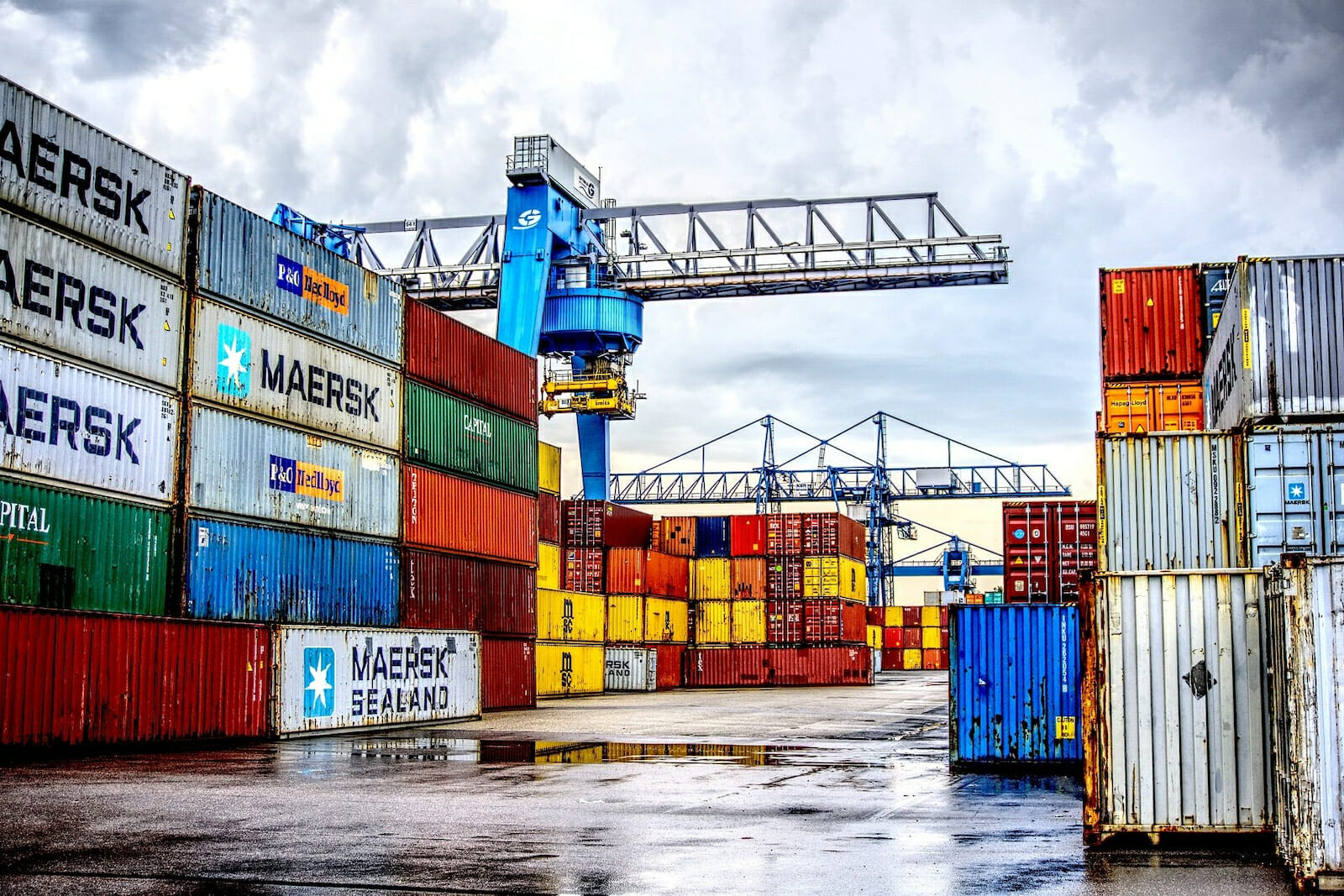
How Uruguay Stands to Win Big from the EU-Mercosur FTA
Uruguay’s Minister of Foreign Relations Francisco Bustillo returned from a trip to Belgium, Germany, and France earlier this month having failed to convince European governments to support immediate ratification of the EU-Mercosur free trade agreement. That drew understandable disappointment within Uruguay, which counts the European Union as a key trading partner.
However, with the agreement likely to be signed in 2021, the country known as “the Switzerland of South America” has much to be positive about, given that it stands to be one of the biggest winners from the deal.
The EU is Uruguay’s third-largest trading partner after China and Brazil, and in 2017 and 2018 the European bloc was the second-largest recipient of Uruguayan exports.
As such, the implementation of a treaty that will significantly improve market access and investment in the South American country promises major advantages to its government and people, as well as to many foreign companies doing business in Uruguay.
Overcoming a Roadblock to Free Trade
According to a statement released by Uruguay’s Ministry of Foreign Relations following Bustillo’s meeting in Berlin with Peter Altmaier, Germany’s economics and energy minister, “both agreed on the economic-commercial and political importance of said instrument in the current delicate global economic context dramatically affected by the pandemic crisis.”
During that meeting, Altmaier reportedly reiterated his government’s intention to sign the deal in 2021, with the statement highlighting how both countries agreed that free trade “should be defended and deepened to aid the necessary and immediate reactivation of the global economy.”
The deal between the European Union (EU) and the Southern Common Market (Mercosur) has been two decades in the making, and in June 2019 both blocs signed a strategic association agreement as a precursor to signing the final deal.
However, ratification of the treaty from the EU has been held up by concern over the current Brazilian government’s attitude towards the environment, with European governments demanding the inclusion of an additional clause to give additional environmental protection.
That has caused some concern within the Uruguayan government, which fears that revisiting the treaty will open it up to time-consuming demands for further modifications, or even rejection of the deal from neighbouring Argentina, where a populist leftwing government has come to power.
Uruguay the Free Trade Promoter
Uruguay’s commitment to free trade and its strong trading relationship with the EU are two good reasons for it to want the deal to be implemented as soon as possible.
Uruguay maintains 11 private free trade zones (FTZs) and one state-run facility within its territory, which attracted investment of over $5.7 billion in the decade up to 2017. The zones are found across six cities in the country, and count both local and multinational companies among their tenants.
Firms active in these FTZs are involved in a wide array of industries, including food and beverages, wood processing, printing, toy production, and pharmaceuticals. Each FTZ offers generous financial benefits, with some focused on particular industries or commercial activities.
The country also maintains a bilateral free trade agreement (FTA) with Mexico, as well as FTAs with Chile, Colombia, Egypt, Israel, and Peru, thanks to its membership of Mercosur, which also includes Argentina, Brazil, and Paraguay as current active members.
Among its key exports to the EU, manufactured goods totaled approximately $1.42 billion in 2019, accounting for 89.7 percent of the value of exported goods. Meanwhile, agricultural products totaled $131 million (10.1 percent of total value), with the remainder made up of fishery products.
The country’s commitment to free trade and promoting business have also led to it becoming one of the most prolific recipients of foreign direct investment (FDI) in Latin America and the Caribbean. Between 2006 and 2016, approximately 4.9 percent of its gross domestic product (GDP) came from FDI — one of the highest rates in the region.
While FDI experienced negative growth over the three subsequent years, the United Nations 2020 World Investment Report highlighted a return to positive FDI flows this year and expectations for them to continue to grow in the future.
4 Reasons Why Uruguay Stands to Win Big
Uruguay is expected to benefit from the FTA by $100 million per year in exports to the EU, with 97 percent of the South American country’s exportable output eligible for preferential status.
However, the benefits go beyond a simple trade balance shift, with the deal also promising greater opportunities for Uruguayan professionals, as well as bolstering the country’s attempts to develop itself as a regional logistics hub. Meanwhile, the longstanding political and economic stability that Uruguay enjoys should make it a prime destination for increased European investment and engagement in the region.
1. Increased trade and well-positioned industry
As highlighted above, Uruguay’s exports to Europe include significant quantities of agricultural goods, including output from the country’s booming forestry industry.
The country has benefited significantly from a series of structural changes to the agriculture industry over recent years, which the United Nations Economic Commission for Latin America and the Caribbean (ECLAC) has lauded for making the country more competitive and contributing significantly to social development.
According to Valeria Csukasi, Uruguay’s chief negotiator for the FTA talks with the EU, the country stands to gain a great deal from the deal in comparison to its Mercosur partners, not only because of the importance and level of development of its agro-export industry but also because none of its industry stands to lose out from the deal.
“We have almost no sensitivity, so it is easier to identify the gains for us and more difficult to find sectors that we qualify as losers,” Csukasi told Crónicas, an Uruguayan news outlet.
Among the areas in which Uruguay stands to fare particularly well is the export of meat, with the country set to win a 25 percent share of 99,000 tonnes slated to be exported to the EU as part of the deal, despite being by far the smallest of the four Mercosur countries.
2. Professional services and exchange
The FTA promises to bring significant benefits to Mercosur in relation to the export of professional and business services to the EU. Under the terms of the agreement, trade in services will be liberalized, giving professional services providers open access to the European bloc.
That promises to be a boon for Uruguay, which boasts the largest middle class in Latin America by proportion of the population, according to the Inter-American Development Bank (IADB).
Meanwhile, English proficiency in the country has shown consistent improvement over recent years, according to the Education First English Proficiency Index, following the rolling out of an ambitious plan in 2015 to provide remote English teaching at schools where no qualified English teachers are employed.
The results have been palpable, with close to 80 percent of students now graduating from primary school with at least English level A2, compared to just 56 percent in 2014.
While Argentina currently enjoys the highest levels of spoken English in Latin America and has been positioning its professional services sector to take advantage of the EU deal, those improvements in Uruguay point to a future generation of stronger English speakers than previously seen.
With the services sector highly developed in Uruguay, and with the country seen as a significantly safer bet for doing business than its larger and politically more volatile neighbour Argentina, Uruguay stands to benefit significantly from the increased trade in services.
3. A growing logistics hub
Uruguay’s status as a regional logistics hub is only set to deepen along with Mercosur’s engagement with the EU. With major ports on key waterways, and ideally located for swift access to the rest of the region, the country already serves as a regional hub in the Southern Cone region, which is made up of the current Mercosur members and Chile.
The country has strong maritime infrastructure, while the Uruguayan government has demonstrated its desire to cement its position within the global trade system through an ambitious deepwater port project in the Atlantic coastal region of Rocha.
That project seeks to attract grain and mineral shipments from neighbouring Argentina and Brazil and is slated to half transportation costs for certain trade flows from the region, with the aim of handling 50 million tonnes of cargo per year.
Meanwhile, its position at the mouth of the Paraná‐Paraguay‐Uruguay Waterway — a significant yet underutilized infrastructure asset for countries in the Southern Cone — where it has two major ports, places it in prime position to take advantage of an uptick in trade.
The country is already established as a major logistics hub for pharmaceuticals and is expected to occupy a similar role in the growing global cannabis trade. With trade flows towards Europe set to increase, and Uruguay employing business-friendly policies to stimulate trade, it is ideally positioned to emerge in an even more important logistics hub than it already is.
4. Increased European investment
Free trade deals are known to stimulate significant increases in FDI. In Chile, European investment grew six-fold during the 14 years after the EU-Chile FTA came into force in 2003.
With Uruguay listed as the most peaceful and stable country in Latin America in the 2020 Global Peace Index, its status as one of the most politically and economically reliable countries in Latin America and the Caribbean makes it highly attractive to investors or corporations looking to expand into the region.
The country known as the “Switzerland of South America” because of its banking secrecy and adherence to the rule of law has seen consistent GDP growth since 2003. It has also seen rising gross national income (GNI) — an indicator of general prosperity among the population — which reached $16,230 in 2019, one of the highest figures in the region.
With European businesses expected to take a greater interest in the region and investment from the EU slated to jump significantly, those factors, along with the county’s strong infrastructure in support of business, are likely to draw many to consider Uruguay as one of their best options.
Moreover, with Uruguay’s efforts to solidify its status as a major logistics hub, the country is only likely to become a more attractive prospect for businesses and investors — not just those based in the EU.

